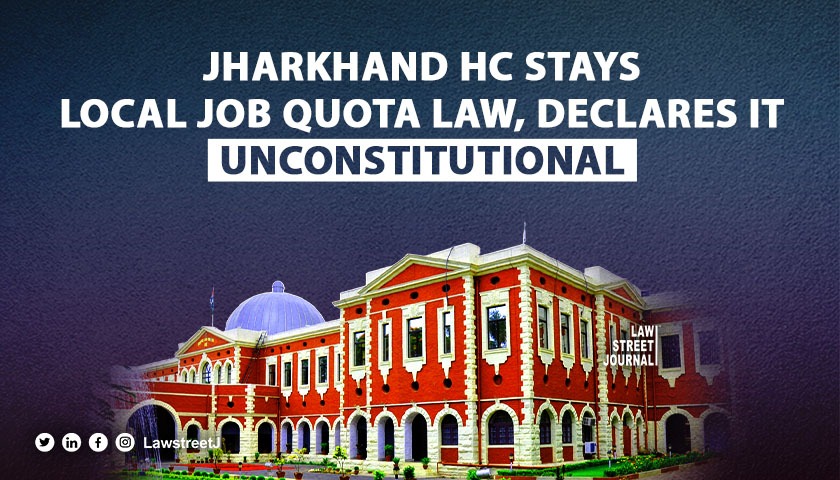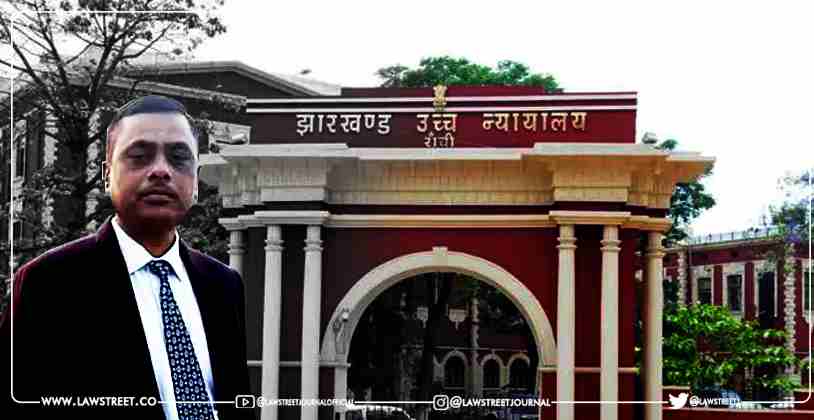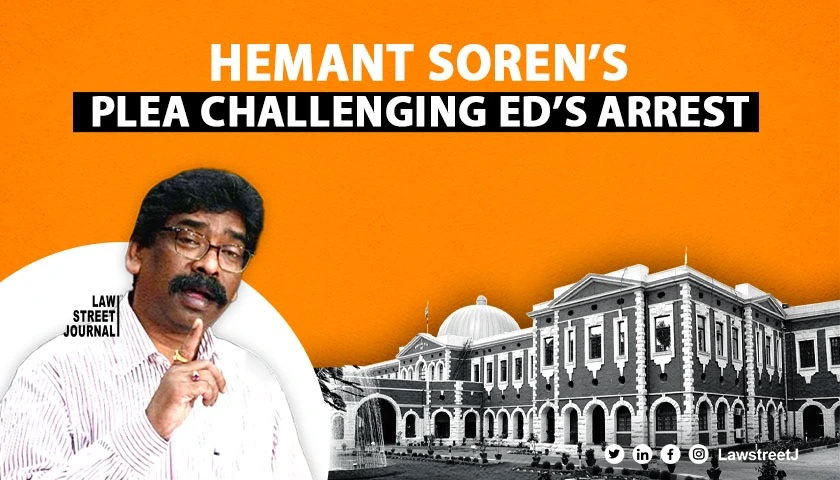Jharkhand: The Jharkhand High Court has stayed the implementation of the Jharkhand State Employment of Local Candidates in Private Sector Act, 2021, emphasizing the unconstitutionality of reserving jobs for local candidates.
Why Jharkhand’s Job Reservation Law Was Declared Unconstitutional: Court’s Landmark Judgment
Chief Justice MS Ramachandra Rao and Justice Deepak Roshan made important observations on the nature of the law and its potential impact on citizens’ fundamental rights.
The court addressed the case filed by the Jharkhand Small Industries Association, challenging the Act that mandates 75 percent of jobs with monthly salaries up to ₹40,000 be reserved for local candidates in establishments with 10 or more employees. The court noted, “Prima facie, the State of Jharkhand could not have enacted the impugned law and restrict the right of a private employer to recruit from the open market employees who would receive less than ₹40,000 per month.”
Jharkhand High Court Strikes Down Local Job Quota Law: Key Legal Observations Explained
Addressing the legal implications, the court observed, “The State of Jharkhand cannot be permitted to virtually build a wall around its territory and prevent private employers who have a fundamental right to carry on business anywhere in the territory of India from employing persons of their choice skilled to do particular work.”
The court highlighted the potential societal impact of such a law, stating, “If the impugned law is implemented, prima facie, the concept of one citizenship for all citizens who have a domicile in the territory of India, envisaged by Article 5 of the Constitution, and the concept of ‘Fraternity’ mentioned in the Preamble to the Constitution of India, would be defeated.”
Referring to previous judicial precedents, the court emphasized that citizens cannot be discriminated against based on their place of residence. The bench cited the Supreme Court’s observations that “talent is not the monopoly of the residents of any particular State” and that equality of opportunity cannot be dependent on where a citizen resides.
In response to the petition, the court stayed the implementation of the Act, concluding, “For all the aforesaid reasons, it appears that the Act is prima facie manifestly unjust and discriminatory, violates Part III of the Constitution of India, and its implementation is not in public interest.”
The court also noted that if the Act were to be implemented, private employers would face hefty financial penalties, and the balance of convenience favors staying its implementation.
The case has been listed for the next hearing on January 31, 2025, with respondents directed to file counter-affidavits.
Advocates Amit Kumar Das, Shivam Utkarsh Sahay, and Sankalp Goswami appeared on behalf of the petitioners.
Ashutosh Anand, Additional Advocate General-III, appeared on behalf of the State of Jharkhand.
Anil Kumar, Additional Solicitor General of India, appeared for the Union of India.
Case title: Jharkhand Small Industries Association & Ors v. State of Jharkhand & Ors




![Supreme Court Collegium approves new Chief Justices for five key High Courts in India [Read Recommendations]](/secure/uploads/2023/12/lj_8000_380d1135-6f3a-4988-a00a-4d5cd5901815.jpg)
!['Arbitrary, impermissible,' SC quashes HC's resolution raising aggregate cut off marks on district judges appointment [Read Judgment]](/secure/uploads/2024/02/lj_3605_Rule-for-Judge-Selection.webp)





